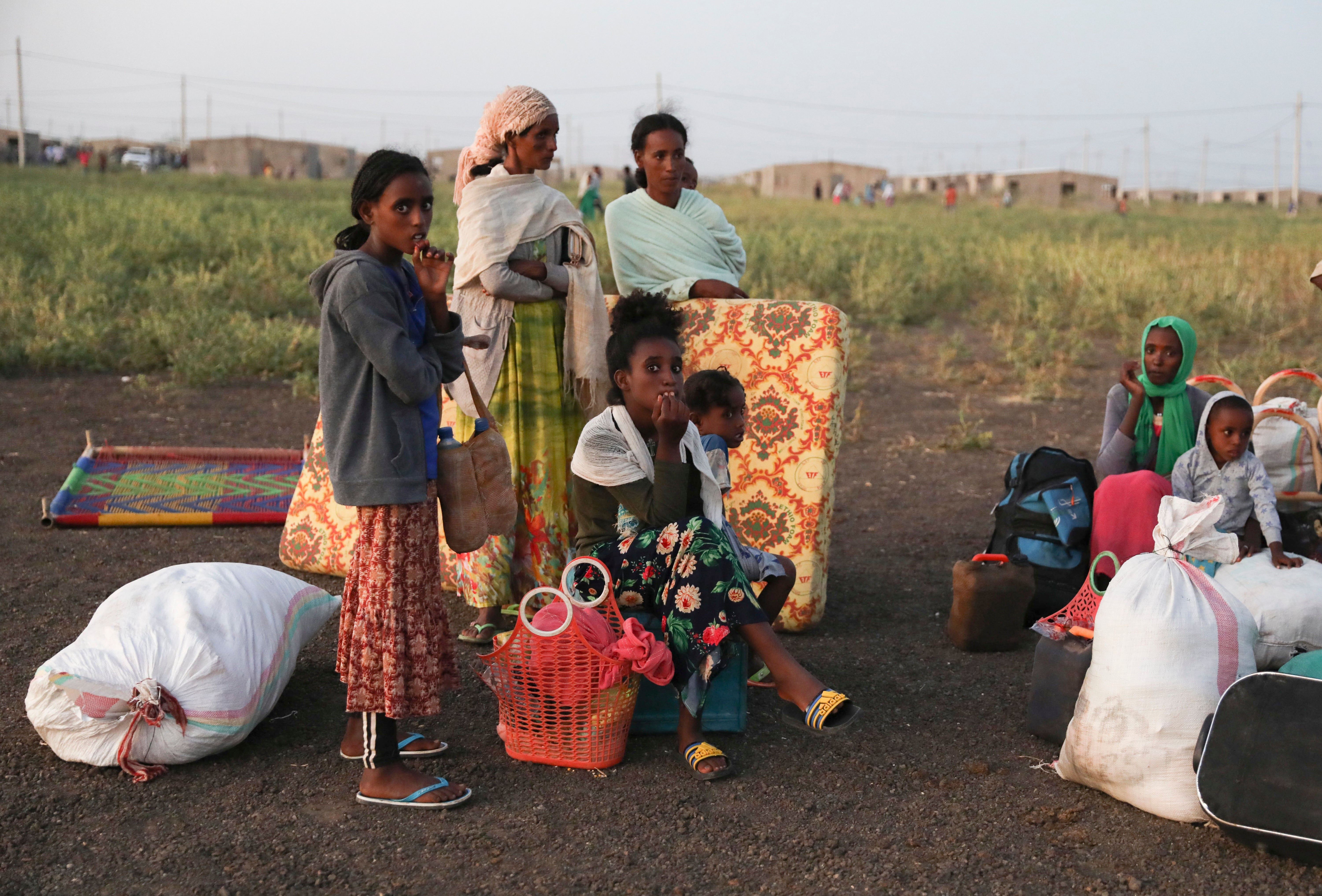UN: Over 25,300 fleeing Ethiopia fighting have reached Sudan
The U.N. refugee agency says Ethiopia’s growing conflict has resulted in more than 25,300 refugees fleeing from the Tigray region into Sudan as fighting spilled beyond Ethiopia’s borders and threatened to inflame the Horn of Africa region

Your support helps us to tell the story
From reproductive rights to climate change to Big Tech, The Independent is on the ground when the story is developing. Whether it's investigating the financials of Elon Musk's pro-Trump PAC or producing our latest documentary, 'The A Word', which shines a light on the American women fighting for reproductive rights, we know how important it is to parse out the facts from the messaging.
At such a critical moment in US history, we need reporters on the ground. Your donation allows us to keep sending journalists to speak to both sides of the story.
The Independent is trusted by Americans across the entire political spectrum. And unlike many other quality news outlets, we choose not to lock Americans out of our reporting and analysis with paywalls. We believe quality journalism should be available to everyone, paid for by those who can afford it.
Your support makes all the difference.Ethiopia’s growing conflict has resulted in more than 25,300 refugees fleeing the Tigray region into Sudan the U.N. refugee agency said Monday, as fighting spilled beyond Ethiopia’s borders and threatened to inflame the Horn of Africa region.
More than 5,000 refugees arrived in Sudan’s border provinces of Kassala and al-Qadarif on Sunday, the highest single-day number of arrivals since the start of the conflict in Tigray earlier this month, the UNHCR said.
Ethiopia’s Nobel Peace Prize-winning Prime Minister Abiy Ahmed announced on Nov. 4 a military attack against the regional government in Tigray in response to an alleged offensive by Tigray forces.
Most of the refugees arriving in Sudan are children and women who walked long distances on rugged terrain to reach safety. They arrive exhausted, hungry and thirsty, having had to cross a river by boat or in some cases by swimming. The river, known as the Tekeze in Ethiopia and the Setit in Sudan, divides the eastern Sudanese areas of Lugdi and Hamdayet.
Authorities in Kassala and al-Qadarif were already overwhelmed and urged U.N. agencies to speed up assistance to deal with a rapidly deteriorating humanitarian situation. Officials said last week they expected up to 200,000 refugees to enter Sudan.
Activist Abdel-Rahman Awad Abdel-Rahman in al-Qadarif said there were “many, many” Ethiopians unregistered with the U.N. refugee agency. He said they arrived with almost nothing and that a “huge amount of assistance” is needed urgently to deal with the growing numbers.
Al-Qadarif Gov. Suliman Ali said Monday the response by U.N. agencies and the international community was “slow” compared to the pace of refugees arriving in the province.
The UNHCR said it was working with Sudanese authorities to “mobilize resources to provide life-saving assistance services to the new arrivals.”
Fleeing Ethiopians were being moved to the Um Rakouba refugee camp but it suffers from food shortages, said Abdel-Baset Wadaa, head of the camp. “We don’t have a problem with water, but we have a lack of food and difficulty providing meals. We need support,” he said.
Refugees gave The Associated Press witness accounts of the conflict as the region was nearly entirely cut off from the rest of the world. Communications are down, airports are closed, roads are blocked and even banks in Tigray are no longer operating.
At the Um Rakouba camp, Tigrian refugee Marwahid Tefani said she was to give birth when the conflict started, but then she was forced to flee to Sudan. “Now I have passed my due date and conditions are bad,” she said.
Refugee Burhan Males said he fled his hometown of Humera in Tigray after it came under attack from what he believes were both Eritrean and Ethiopian forces.
“A bomb came from the Eritrean direction and an attack from the direction of the Ethiopian federal government in the city. A lot of people died there,” he said.
Tigray officials have accused Eritrea of entering the conflict on the side of Abiy Ahmed’s government in Ethiopia. Tigray regional president Debretsion Gebremichael said Sunday that missiles have been fired at Eritrea’s capital, Asmara, and he threatened more.
Officials in Eritrea, one of the world’s most reclusive nations, have not responded to requests for comment.
___
Associated Press video journalist Mohaned Awad contributed from al-Qadarif, Sudan.